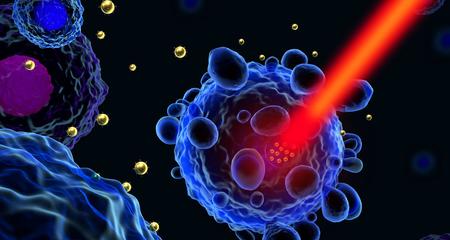Because so many factors affect how a chemotherapy plan is developed, our expertise and national role in research is invaluable. There are no set “menus” to follow, only established guidelines. Our medical oncologists consider factors such as the patient’s overall health, personal preferences and tolerance of different side effects.
They then consider the dosage of the drugs; what combinations of drugs to use; how many different drugs to use; how frequently to administer them; whether to combine the chemotherapy with radiation therapy; and whether the drugs should be given before, after or concurrently with radiation therapy. Our medical oncologists are also part of our regular tumor boards, and work closely with all of our thoracic cancer specialists to determine the best treatment plan for each person.
Types of Lung Cancer and Chemotherapy Treatments Options
Chemotherapy is the treatment backbone for a significant number of lung cancer patients. Once the stage of the cancer is known, a medical oncologist determines the most appropriate chemotherapy drugs. Some drugs can target certain mutations in the cancer gene, increasing their effectiveness and likelihood of response.
Small Cell Lung Cancer Chemotherapy
Small cell lung cancer is sensitive to chemotherapy and responds so well that surgery is rarely a part of the treatment plan. Established guidelines recommend roughly five or six different chemotherapy drugs as possible treatments for small cell lung cancer.
The standard treatment approach for small cell lung cancer that has not spread is chemotherapy and radiation given at the same time.
More advanced stages are generally treated with chemotherapy first and may be followed by radiation therapy to the chest, the brain, and other sites of disease depending on the response to chemotherapy and symptoms.
Non-Small Cell Lung Cancer Chemotherapy
Non-small cell lung cancer has more subtypes and more diverse treatment options. Currently, 10 - 12 chemotherapy drugs are recommended for treating non-small cell lung cancer. In general, all of the subtypes are treated following the same guidelines.
Thoracic Mesothelioma Chemotherapy
The best chance for a cure for thoracic mesothelioma is through a combination of surgery, chemotherapy and radiation therapy. Participation in clinical trials is an important option for patients with this cancer.
Some patients with thoracic mesothelioma may be eligible for HIPEC, an advanced surgery that delivers chemotherapy to the site of the cancer. During a surgical procedure, physicians remove visible mesothelioma tissue and then introduce anti-cancer drugs directly into the chest cavity.
Treating Lung Cancer Based on Staging
If lung cancer is confined to the lung (Stage I) and surgically removed, chemotherapy is sometimes given to prevent recurrence. This is considered curative chemotherapy.
Chemotherapy is also used for Stages II and III for lung cancer that is confined to the chest. Chemotherapy can be given in combination with radiation and surgery when complete removal and curative treatment appears possible.
Doctors will treat cancer that has spread, or is likely to spread differently than cancer that is confined to the lung. Occasional isolated single areas of spread (oligometastases) are treated aggressively with surgery and a combination of radiation and chemotherapy. If the cancer has spread (metastasized) to other parts of the body such as the liver, brain or elsewhere (Stage IV), chemotherapy is given to relieve symptoms and prolong life. Today, the side effects of chemotherapy — nausea and vomiting — are greatly reduced, so benefits from chemotherapy are much greater than in the past.
Virtual Visits Are Available
Safe and convenient virtual visits by video let you get the care you need via a mobile device, tablet or computer wherever you are. We’ll gather your medical records for you and get our experts’ input so we can offer treatment options without an in-person visit. To schedule a virtual visit, call 1-866-680-0505.
More to Explore





